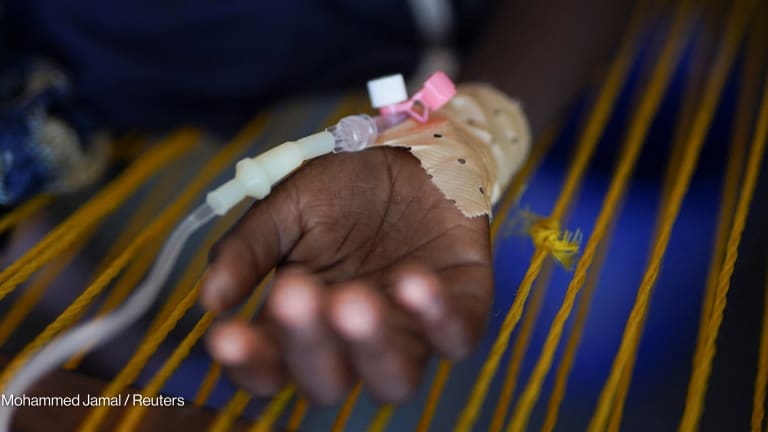
Investing in universal access to toilets and taps now would mean trillions of dollars in global economic gains over the next two decades, according to a new WaterAid report.
The report “Mission-Critical: Invest in Water, Sanitation and Hygiene for a Healthy and Green Economic Recovery” states that access to toilets with safely managed sanitation could yield up to $86 billion per year in greater productivity and reduced health costs, basic hygiene facilities could mean an extra $45 billion per year, and taps in the home could equate to an annual $37 billion globally.
Additionally, 6 billion cases of diarrhea and 12 billion cases of helminths could be avoided between 2021 and 2040.
The benefits of WASH investment are far greater than the cost, said John Garrett, senior policy analyst of development finance at WaterAid. According to the report, returns of up to 21 times the cost of implementing basic water, hygiene, and toilets could be expected.
Garrett said the aim of the report is to drive this message home among finance ministers as they look to “build back better” from COVID-19.
“Our global benefit-cost analysis demonstrates that investing in WASH is a triple win.”
— Caroline Vexler, senior economist, Vivid Economics“We’re saying WASH should be a crucial focus for stimulus measures, finance ministers, and others as they look to get their economies going,” Garrett said, adding that now is a crucial moment. “There’s [a] general recognition that governments need to act and get economies going, they need to be investing in sectors, rolling out the vaccine program, and strengthening health systems. We’re saying WASH needs to be part of that.”
In 2020, 1 in 4 people still lacked safely managed drinking water in their homes and nearly half of the world’s population lacked safely managed sanitation services. According to the latest Joint Monitoring Programme report, Sustainable Development Goal 6 on access to clean water and sanitation for all by 2030 is not on track. It is estimated that $229 billion a year until 2030 would be needed to achieve the global goal.
“Our global benefit-cost analysis demonstrates that investing in WASH is a triple win,” said Caroline Vexler, senior economist at Vivid Economics, who led the analysis that fed into the report. “It can unlock billions in economic opportunities and health savings at relatively low cost, it can address key objectives of stimulus spending post-COVID, and can build resilience to increasing global risks.”
Opinion: Why urban climate adaptation programs must refocus on water services
Urgent attention is required to help cities deal with the impacts of climate change on vulnerable communities’ access to clean water and sanitation, according to WSUP’s Neil Jeffery.
Climate resilience and equality could also see gains. According to WaterAid’s report, achieving universal basic water services such as the installation of a community water pump or well can give women the equivalent of 77 million working days per year, which they currently spend collecting water while safely managed water would free up 122 million working days.
The report comes just as this year’s third meeting of finance ministers and central bank governors from the G-20 group of nations — focusing on “people, planet, and prosperity” — prepares to get underway in Venice.
WaterAid is calling on finance ministers to ensure WASH is central to COVID-19 economic recovery plans in low- and middle-income countries; make financial commitments to plug the WASH funding gap; and position WASH as a key element of mitigating climate change.
Currently, just 1.6% of climate finance goes toward adapting WASH services. Yet extreme weather events can directly affect the quality and availability of water sources and sanitation systems, which can impact people’s health and prosperity.
“We’re taking this message to governments and making the case that as everyone is focusing on recovery from COVID-19 or tackling it where infection rates are still high, we’re saying let’s invest in WASH, it’s a public health investment which is so crucial,” Garrett said.
Visit the WASH Works series for more coverage on water, sanitation, and hygiene — and importantly, how WASH efforts intersect with other development challenges. You can join the conversation using the hashtag #WASHWorks.









